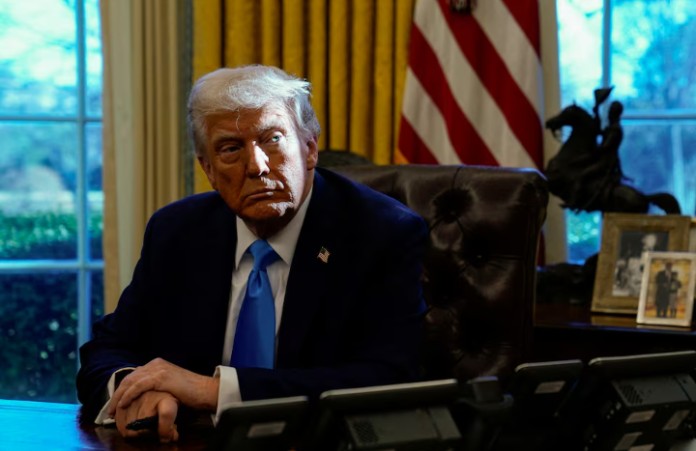In a bold move, U.S. President Donald Trump is showing no urgency to engage in talks with Chinese President Xi Jinping, despite the fresh tariff battle between the world’s two largest economies.
Trump’s sweeping decision to impose a 10% tariff on all Chinese imports has sparked a retaliatory response from China, though their measures are comparatively restrained. As both nations grapple with the impact of escalating trade tensions, the question remains: will this new tariff war lead to a lasting standoff, or is there room for dialogue?
Trump’s Stance on Trade War
Trump, speaking from the White House, downplayed the impact of China’s retaliatory tariffs, stating simply, “That’s fine.” His comments come in the wake of his administration’s decision to apply the 10% tariff, which officially went into effect on February 4, 2025. Despite this, Trump remains indifferent to calls for a high-level conversation with Xi, despite reports suggesting China’s willingness to negotiate.
While the White House indicated that a call between the two leaders is still to be scheduled, officials believe such a conversation could ease tensions or delay further tariff hikes. China, for its part, is hoping to prevent the situation from spiraling out of control, calling for a cooperative relationship to maintain stable, healthy, and sustainable ties.
China’s Limited Response
China’s response to the U.S. tariffs is measured but pointed. The country has imposed tariffs on U.S. imports, including a 15% levy on coal and liquefied natural gas (LNG), as well as a 10% tariff on crude oil and certain machinery. Additionally, China has launched an anti-monopoly investigation into Google and is monitoring several U.S. companies, such as PVH Corp and Illumina, for possible sanctions.
Despite these retaliatory actions, analysts believe China is avoiding a full-scale trade war, hoping that continued dialogue with the U.S. will prevent further escalation. The situation remains fluid, with China’s policymakers signaling they would prefer to find common ground with Washington to avoid long-term damage to both nations’ economies.
Impact on Global Economy
The new tariffs come at a time when global supply chains are still recovering from the earlier trade conflict between the two nations. The International Monetary Fund (IMF) has raised concerns over the potential global consequences of rising protectionist policies, noting that such measures could disrupt supply chains and dampen investment worldwide.

As the world watches the outcome of this tit-for-tat battle, there’s growing unease over how prolonged trade uncertainty could affect global markets and economic stability.
Trump’s Next Target: Europe?
Trump’s tariffs are not limited to China. He has hinted that the European Union (EU) could be his next target, though he has not specified when such measures might come into effect.
The EU has already expressed its readiness for tough negotiations, but officials are stressing the need to build a stronger partnership with the U.S. to avoid a repeat of the tensions seen with China.
Looking Ahead
The situation remains tense, and experts suggest that the trade war is only in its early stages. Both the U.S. and China have more cards to play, and the likelihood of further tariffs being imposed is high.
For businesses and global markets, this is a time of heightened uncertainty. As the two nations continue to clash over trade issues, the international community waits to see whether talks can truly resolve the deepening conflict or if the tariff war will escalate even further.



